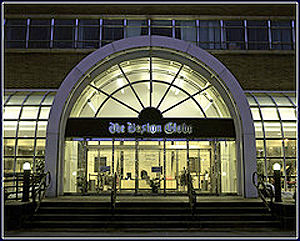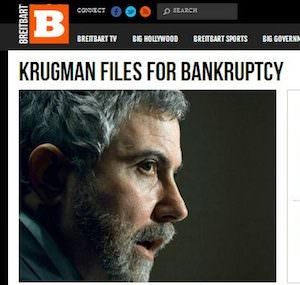A World Without the Globe?
We have gone through other periods when great newspapers succumbed to new economic realities. Most American cities once had three, four or more competing dailies; now, most are down to just one. But those earlier rounds of attrition were exercises in survival of the fittest. The difference now is that newspapers are in trouble no matter how fit they are.
Despite the whole Red Sox vs. Yankees thing, employees of The Boston Globe were mostly relieved in 1993 when the paper was bought by The New York Times Co. for an astounding $1.1 billion. If the era of local family ownership had to end, nestling beneath the wing of one of the world’s great newspapers seemed the best alternative. And if the Times was willing to pay so much, it must have been serious about putting quality ahead of the bottom line.
That was then. Now, after several rounds of painful cutbacks and layoffs at the Globe, the Times is squeezing a further $20 million in savings from the Boston newspaper’s unions — and threatening to shut the paper down if the demand is not fully met. The economics of our industry are cruel and remorseless, but still it’s alarming to witness what looks like an act of cannibalism.
To be fair, the Globe is reportedly on pace to lose about $85 million this year. The New York Times Co. is hardly in a position to swallow a loss of that magnitude, given that the company’s flagship newspaper is waging its own fight against a rising tide of red ink.
Globe partisans could respond by citing a long list of questionable — to put it mildly — moves by Times Co. management: spending hundreds of millions of dollars to buy back company stock, accumulating more than $1 billion in debt, building a new “trophy” skyscraper headquarters near Times Square, borrowing $250 million from Mexican billionaire Carlos Slim at what amounts to 14 percent interest.
Particularly galling to those who love the Globe, which is New England’s largest newspaper, is that The New York Times has maintained its national and international news-gathering capacity while the Globe has endured sharp reductions in staff and other resources. Eileen McNamara, a Pulitzer-prize-winning Globe columnist who left the paper and now teaches at Brandeis University, wrote this of the Times’ treatment of the Globe: “It pimped her out for profit during the booming 1990s and then pillaged her when times got tough. It closed her foreign bureaus and cheapened her coverage of everything from the fine arts to the hard sciences.”
It seems clear to me that Times management has never really understood the Globe or its market, and also that management favors one of the company’s world-class newspapers over the other. It’s also clear, however, that no one in the Times’ elegant new Manhattan aerie can take joy in threatening to silence one of the nation’s most important journalistic voices. The Globe has won 20 Pulitzers in its history — with eight of them coming since the Times Co. bought the paper.
Times management may have been clumsy, inept or unfair in its handling of the Globe, but the paper’s New York “overlords” didn’t cause the crisis that is ravaging the entire newspaper industry. In brief: Circulation is declining slowly; advertising revenues have fallen off a cliff; the Internet hasn’t yet yielded a business model that can support amply staffed newsrooms.
We have gone through other periods when great newspapers succumbed to new economic realities. Most American cities once had three, four or more competing dailies; now, most are down to just one. But those earlier rounds of attrition were exercises in survival of the fittest. The difference now is that newspapers are in trouble no matter how fit they are.
It’s almost impossible to think of Boston without the Globe. With its great universities and cultural institutions, the city thinks of itself as a modern-day Athens, the Hub of the Universe. How could Boston exist without the erudite, patrician Globe, which so often seems to be looking down its nose at the rest of the world? Or, for that matter, without the raffish Boston Herald, which channels the sensibilities of the city’s less-glamorous ZIP codes — and which has also seen its revenues dwindle and its resources shrink?
I don’t believe this is the death knell for newspapers, even the old-fashioned, ink-on-paper kind. I do believe that someday, somehow, the industry will find enough revenue in electronic distribution to pay for the kind of journalism our democracy needs. If I had the definitive solution, I’d shout it from the mountaintops — maybe after patenting it first.
What I do know is that smart, prudent management can buy precious time to figure this all out. Doomsday threats don’t help.
Eugene Robinson is the 2009 Pulitzer Prize winner for commentary. His e-mail address is eugenerobinson(at)washpost.com.
© 2009, Washington Post Writers Group
Your support is crucial…With an uncertain future and a new administration casting doubt on press freedoms, the danger is clear: The truth is at risk.
Now is the time to give. Your tax-deductible support allows us to dig deeper, delivering fearless investigative reporting and analysis that exposes what’s really happening — without compromise.
Stand with our courageous journalists. Donate today to protect a free press, uphold democracy and unearth untold stories.







You need to be a supporter to comment.
There are currently no responses to this article.
Be the first to respond.